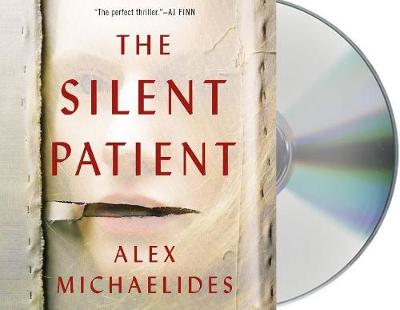
lessthelonely
Let's start with some things because when it comes to Thrillers, I have a lot to say. First of all, Thrillers need to fulfill a couple of requirements: chapters must be at max medium, and, if for any reason they're long, it means it's just a way to unify a bunch of shorter stuff. When I first started reading books like these, I found myself incredibly drawn into the idea of mysteries and earth-shattering twists, only to then find out another genre of Thrillers that are way more my speed. There's a difference between soapy and fast action Thrillers: soapy thrillers are usually about ambiance, they use cliffhangers but way more liberally and with a lot more on creating this sense of dread and danger; on the other hand, fast action is usually where stuff keeps moving and happening, and this is usually achieved by creating a body count of some sort (maybe they're murdered, maybe they're kidnapped, stuff like that).
Fast action books tend to go with the escape, defeat the criminal type of stuff, or even major character deaths. Soapy is a lot more about retroactive twists, stuff that makes everything you read reframed in a whole new light, and thus plot tends to be a lot less moving and less immediate high-stakes. There's a mystery surrounding something. The plot twist will give you the answer. Fast action thrillers don't shy away from big reveals, but they can be immensely satisfying without them.
I think that with those descriptions, anyone who has read The Silent Patient won't find it hard at all to believe that it is a soapy sort of Thriller. The synopsis tells you everything you're supposed to expect out of it: Alicia Berenson killed her husband 7 years ago. Since then, she hasn't spoken. The obvious questions arise: Why? Why did she kill him? Why can't she speak? Also, did she kill him? This type of book gleefully rejoices in this type of thing: since you know there's some big twist coming, anything seems fair game, including contradicting the book's synopsis and main tagline. The author wants you to consider all scenarios because even if you are wrong, the simple paranoia of not knowing what to believe is part of the fun. As I said: ambiance.
Like most Psychological Thrillers - these are usually ALWAYS soapy shit: The Girl on The Train, Into The Water, I Let You Go, The Ice Twins -, The Silent Patient is yet another book with a title beginning in The that tries its best to grab you with its premise. The thing is, ever since I found my fast action thrillers, I found I don't enjoy Psychological Thrillers because I tend to find that the premise alone is everything and anything that's supposed to drive your intent and willpower to finish the damn book. When I didn't know better, that was easy. That's how I finished both Paula Hawkins' books, though I've been putting off A Slow Fire Burning ever since it was released - I thought that a good premise and a whole lot of wandering in the middle just to reach a plot twist was exactly how good a book's plot could get.
But I was wrong. Here's the thing about The Silent Patient: I feel like this book is, first of all, a bit cluttered with prose at times, using a whole lot of meandering and mulling over stuff. The premise seems like the best thing of this book, but the mystery and its middle unravel in quite a satisfying way. As new characters are introduced and then their connection to Alicia is explored, stuff gets more and more interesting: you get your cheating wives, your sexual assaults (because God knows male authors LOVE to include that), your traumatizing family members, and a lot of past conflicts to unravel. So I don't know about you, but I realized that most of the time, I was incredibly invested in the situations this book throws at the reader because even if they're pretty expected from books like these, they're pretty well executed.
A lot of reviews I saw said this book isn't cluttered with prose. Here's the thing, it's a lot less cluttered than many other Psychological Thrillers, but it's not exempt from this. When one of the major subplots gets introduced (Kathy), you'll find that Mr. Theo gets caught up in himself, just mulling over and over again with monologues that go nowhere. Some of them were easy to read, but especially towards the beginning I no shit told someone about my predictions for this book and I said: Like, dude, shut up, I get it! Other than that, yes, this book moves quickly. One great tip for people looking for quick reads: see the number of chapters. If it's big, you're set.
Now, I'm not going to be spoiling the twist because this isn't that kind of review, but though it caught me off guard, the reason it did is... because I thought we were past these twists. The way it is done was pretty clever, I had never seen anything like it - a book that very proudly takes advantage of the way we interpret reading. Good stuff. But, the twist itself, though extremely satisfying (I'm sure some will find it shocking), is nothing new. It takes a never-before-seen-twist for me to be shocked. But all it takes is any well-executed twist for me to be impressed.
So... Color me impressed. It takes a good author to make character relationships and dynamics as intriguing as cold-blooded murder.
I'm going to give it 3.75 stars as opposed to only 3 because I enjoyed my time with the book. And every time I read a book this fast without my willpower thrown into the mix, I figure it deserves it.





